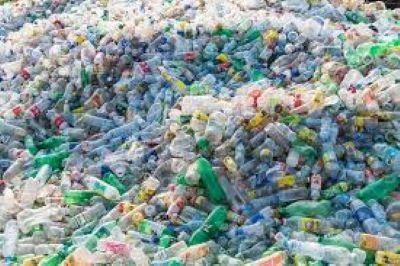Efforts to finalize a global treaty to combat plastic pollution stalled in Geneva after 10 days of intense negotiations, with delegates failing to reach consensus on a draft text.
The Intergovernmental Negotiating Committee (INC), tasked with developing a legally binding instrument on plastic pollution, adjourned its resumed fifth session (INC-5.2) on Friday without agreement, but pledged to continue talks at a later date.
The meeting drew more than 2,600 participants to the Palais des Nations, including 1,400 government delegates from 183 countries, representatives from over 400 organizations, and nearly 70 ministers and vice ministers. Despite the broad turnout, sharp divisions over issues such as production caps, financing, compliance, and regulation of hazardous chemicals prevented agreement.
“This has been a hard-fought 10 days against the backdrop of geopolitical complexities, economic challenges, and multilateral strains. However, one thing remains clear: all countries clearly want to remain at the table,” said Inger Andersen, Executive Director of the UN Environment Programme (UNEP). “While we did not land the treaty text we hoped for, we at UNEP will continue the work against plastic pollution – pollution that is in our groundwater, in our soil, in our rivers, in our oceans and yes, in our bodies.”
Talks were based on a Chair’s Text from INC-5.1 in Busan, with new draft and revised proposals introduced in Geneva. Despite intensive debates in plenary sessions, contact groups, and informal consultations, delegates could not resolve major disagreements.
INC Chair Ambassador Luis Vayas Valdivieso urged negotiators not to lose momentum. “Failing to reach the goal we set for ourselves may bring sadness, even frustration. Yet it should not lead to discouragement. On the contrary, it should spur us to regain our energy, renew our commitments, and unite our aspirations,” he said.
The Geneva round is part of a series of negotiations that began in 2022 after the UN Environment Assembly adopted a historic resolution to create a binding treaty addressing plastic pollution, including in the marine environment. Previous sessions were held in Punta del Este, Paris, Nairobi, Ottawa, and Busan.
Civil society groups — including Indigenous Peoples, waste pickers, youth activists, scientists, and artists — also played a visible role in Geneva through protests, art installations, and side events, demanding stronger global action.
INC Secretariat Executive Secretary Jyoti Mathur-Filipp said the process must now press ahead despite setbacks. “As this session concludes, we leave with an understanding of the challenges ahead and a renewed and shared commitment to address them. Progress must now be our obligation,” she said.
A new date for resuming the negotiations will be announced in the coming months.


